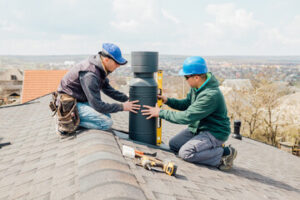Chimney sweeps are responsible for ensuring that homes are safe from the harmful effects of carbon monoxide. Certified chimney sweeps are trained by the Chimney Safety Institute, which is dedicated to preventing chimney fires and leaks. These professionals meet strict standards of competence and conduct during their work.
The website offers a Certified Professional Locator. Click https://chimneysweepcharleston.com/ to help you find a certified chimney sweep in your area. It is also recommended that you ask friends and family for recommendations and read online reviews for the best chimney sweeps. Once you’ve found a chimney sweep, schedule two or three appointments annually.
A professional chimney sweep will be able to inspect the entire structure of your chimney and prevent future problems. They’ll also be able to determine whether or not any parts of the chimney or stove need repair. If soot is building up in the chimney, it’s essential to have it cleaned. If it’s becoming difficult to keep the chimney clean, a professional will be able to provide guidance on how to reduce creosote buildup.
Chimney sweeps use long brushes to clean the inside surfaces of the chimney. Depending on the size of the chimney, a chimney sweep can take anywhere from an hour to two hours. If the chimney is in good shape, the cleaning process will only take a few hours. In addition, a chimney sweep can also perform minor repairs, such as replacing a missing chimney cap or a damaged chimney liner.
While chimney sweeping may seem like a simple chore, the process can become extremely messy. The most reputable chimney sweeps will wear booties over their shoes and lay down tarps to protect your floors. A good chimney sweep will also have a HEPA vacuum to clean up the debris they find.
A professional chimney sweep can prevent costly repairs and save you hundreds or even thousands of dollars in the long run. One leaky chimney can cost you upwards of $10,000. By hiring a professional chimney sweep to inspect your chimney, you’ll be able to save as much as $100 on repairs.
The Level 1 inspection is the simplest of all chimney inspections and does not require any special equipment. This inspection is recommended for all types of fireplaces, stoves, and gas fireplaces. Whether your chimney is made of clay, steel, or metal, a yearly inspection is important to keep your home safe.
In a Level 1 inspection, the technician will check the structure of your chimney, including the crown, flue liner, connectors, and other interior walls. This inspection will ensure that the chimney is clear of debris and combustible deposits. A Level 1 inspection is a good first step for homeowners.
Level 2 inspections are more detailed than the Level 1 inspection. Level 2 inspections include a thorough visual examination and a thorough evaluation of accessible parts of the chimney. The inspector may also use a video camera to examine joints and the condition of the flue. A Level 2 inspection should not permanently damage the chimney.
Level 2 inspections are required when selling a home and protect the seller against claims or costly repairs from the buyer. The Level 2 inspection is especially important if you have an old chimney or have experienced a fire that damaged the chimney, such as a fire from a natural disaster or a general building fire.
The chimney serves as a barrier between your home and fire, but debris can accumulate and interfere with the chimney’s ability to safely remove dangerous gasses and particles. It may also be compromised over time and lead to carbon monoxide poisoning and chimney fires. In addition, damaged chimney caps may let critters into the flue, and oil and gas-fueled appliances leave deposits in the flue.
A Level 3 inspection is the most comprehensive of all the inspections. The investigator will look at all areas of the chimney, even hidden areas. In some cases, it may even be necessary to remove parts of the building or chimney in order to examine the interior thoroughly. A Level 3 inspection may be necessary after a major renovation or a hurricane.
The National Fire Protection Association recommends that chimneys be inspected annually. An annual inspection will help detect minor issues and tell you when it’s time for a thorough cleaning.
The Master chimney sweep certification is a professional designation that is awarded to skilled and experienced chimney sweeps. It requires at least eight years of sweep experience, as well as six years of continuous certification. Unlike the Certified Master status, which requires certification exams, this certificate simply acknowledges the experience and a certain amount of information. A chimney sweep must prove his or her experience level, and the certification badge will provide proof of that level.
